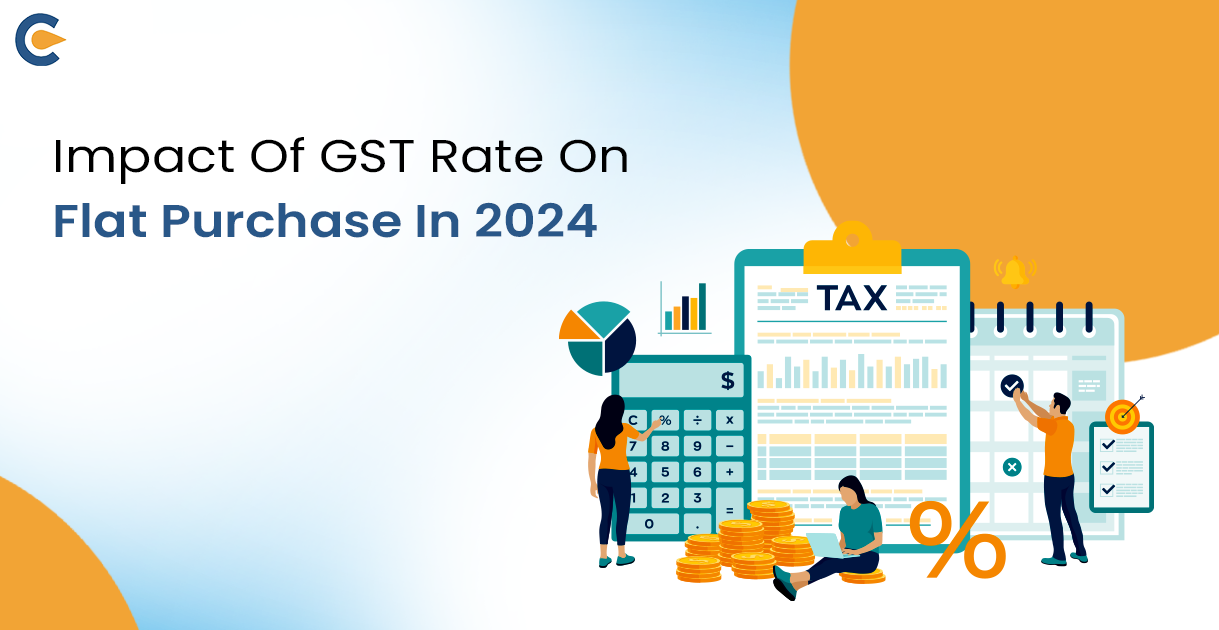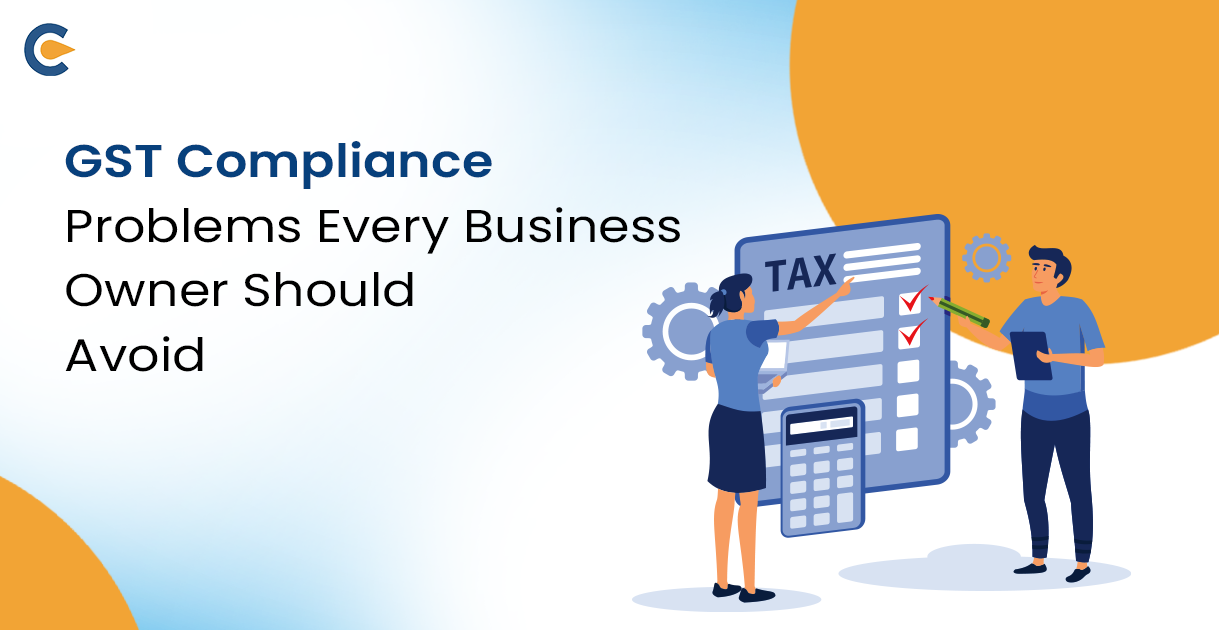Previously, a number of taxes, such as central excise duty, service tax, and value-added tax (VAT), applied to India’s real estate sector. The cost of homeownership was often increased by the cascading impact of these taxes, which assessed many taxes on top of one another. The goods and services tax rates were designed to replace many indirect taxes with a unified tax structure, streamlining the taxation process and putting a stop to the cascading effect. The GST Council, which consists of representatives from the central and state governments, has been entrusted with modifying the goods and services tax rates in order to provide an equitable and transparent tax system. GST rates on flat purchases in the real estate sector have changed significantly since the GST was implemented.
Taxes Before Implementation of GST Rates on Flat Purchase
Prior to the introduction of a single tax in the shape of the GST in 2017, buildings were subject to a number of central and state taxes at different points during the project’s development cycle. Although these levies made development more expensive for builders, they did not provide them with credit against the production responsibility. Prior to the implementation of the GST, real estate developers were required to pay a number of taxes, such as:
| Service Tax | Value Added Tax |
| Octroi Tax | LBT |
| Entry Tax | Central Excise Tax |
Importance of Goods and Service Tax Rates in Real Estate
India is a big and varied nation. Numerous socioeconomic elements have an effect on the economy. Thus, it is imperative that India implement a more straightforward tax structure. Users become less motivated and spend more time in complex systems. Therefore, India urgently needed to create a more straightforward tax structure. Thus, on July 1st, 2017, the Indian government implemented the Goods and Services Tax (GST). Numerous taxes, including the Octroi, State-level Value Added Tax (VAT), excise duty, services tax, customs duty, and surcharges, were eliminated under this new tax structure. This made the system less complicated and contributed to the creation of a unified tax system in India.
With the real estate industry contributing up between 6 and 7% of India’s GDP, it is a vital part of the country’s economy. Significant improvements and adjustments have been brought about by the introduction of the goods and services tax (GST) in the Indian real estate market.
Nonetheless, the industry currently operates under a single tax system owing to the GST, with rates of 18% for commercial buildings and 5% for residential ones. The effect of GST on real estate prices has been one of the main advantages for the industry. The ultimate cost of homes for purchasers has decreased as a result of the introduction of GST.
GST rate on Flat Purchase
In India, buyers of under-construction real estate, such as apartments, bungalows, flats, and developable land, are required to pay a goods and services tax (GST). For houses in the inexpensive category, the goods and service tax rate is 1%. The goods and service tax rate on other properties is five percent.
| Property Type | Before 2019 | After 2019 |
| Affordable housing that is under construction | 8% with ITC | 1% without ITC |
| Unaffordable housing which is other than under construction | 12% with ITC | 5% without ITC |
| Ready to move into houses | – | – |
GST Rate on Cancellation of Flat Purchase
Notification No. 26/2022 CT, which was released by the Central Board of Indirect Taxes and Customs during the 48th GST Council Meeting, included a new feature that allows unregistered purchasers to claim a GST refund that they have paid on apartments (cancelled) within the necessary time limit. Therefore, you can now ask the developer or the government for a refund of the GST you paid, depending on when you choose to terminate the contract to purchase a house.
The first prerequisite for qualifying is the termination of the real estate transaction. This suggests that the sale agreement ought to have been cancelled and that there should not have been a transfer of property ownership. On the cancelled real estate deal, GST was due. This suggests that the money was expected prior to the cancellation of the transaction. The administration has proposed new revisions that would prevent taxpayers from losing money on cancelled transactions, which is particularly helpful to them.
GST Rate on Ready-to-Move-in Flat
A property is considered ready-to-move-in and is released from work contracts after it has been finished and an occupancy certificate issued. To put it briefly, only under-construction houses that have not yet acquired occupancy certificates are subject to the GST. It is important to note that under the former system, buyers of ready-to-move-in homes also had to pay real estate property tax.
However, the developer or owner finally includes this fee in the total cost of the property because they have already paid GST as part of the acquisition. This implies that although ready-to-move-in residences are exempt from direct GST, the buyer ultimately faces the indirect cost. The tax authorities impose the appropriate tax rate on a building that falls under the “work contracts” category. Developers are, therefore, unable to charge GST on the sale of ready-to-move-in properties.
GST Rate on Flat Purchase that are under construction
Luxury property purchasers are concerned about the GST on flat purchases made while the building is still under construction. Under the GST, under-construction properties are subject to a 5% tax rate. The tax rate, however, could change based on the project’s type and the state. The developer can receive the input tax credit (ITC), but they are not required to transfer this advantage to the customer. It is the buyer’s responsibility to make sure they receive the ITC benefit from the developer.
GST Rate on New Flats
The ultimate cost of a new apartment may differ depending on whether or not the developer chooses to pass on the ITC advantage to the customer. GST for new flats is 5%. The developer is eligible to get the ITC advantage when they buy the supplies and labour needed to build the property. Nevertheless, the developer is not required to provide the buyer with the ITC advantage.
Impact of GST Rate on Flat Purchase
A significant change in the tax structure was brought about by the Goods and Services Tax (GST) in India, which had an effect on the real estate market as well as other economic sectors. A variety of factors have been impacted by GST for homebuyers.
Transparency and a Lower Tax Burden
Greater openness is one of the main advantages of the GST regime for homebuyers. In the past, purchasers had to pay a number of indirect taxes, including stamp duty, service tax, and VAT. The entire tax system was made simpler by the GST, which combined various levies into one. Homebuyers now find it simpler to determine their tax obligations and acquire condos for sale in Mumbai or abroad, thanks to this transparency.
Effects on Accessible Housing
The market for affordable homes has benefited from GST. By lowering GST rates and offering tax breaks, the government has encouraged the building of affordable dwellings. This has prompted developers to concentrate on projects including inexpensive housing, opening up homeownership to a larger segment of the populace.
The Input Tax Credit (ITC)
The idea of an input tax credit for builders was first suggested with the introduction of the GST. As a result, developers are able to deduct the GST they pay on supplies and building materials. The intention was to transfer this advantage to purchasers of real estate by means of lower property values.
Impact on Resale Properties
GST has little impact on properties that are being resold, even though it mostly affects properties that are still under development. The general GST impact on buyers of resale properties is minimal, but they should be mindful of the state-by-state variations in stamp duty and registration fees.
Improved Compliance with Rules
Since the introduction of the Goods and Services Tax (GST), builders and developers have been required to keep more accurate financial records and adhere to tax laws. As a result, there is now more accountability and openness in the real estate industry, which helps purchasers by decreasing the possibility of dishonest behaviour.
Tax Benefits for Building Properties
In comparison to the former service tax system, GST has reduced the tax rates on properties that are still under development. Purchasers of still-under-development properties may now afford to do so, thanks to the tax rate cut. The GST rate has been lowered for buyers, increasing accessibility to housing.
Other Impact
- The lower GST rate on flat purchases has made affordable housing units more accessible, which aids in addressing low-income groups’ housing requirements and promoting social welfare.
- The reduction in the GST rate on flat purchases for affordable housing units aligns with the government’s objective of guaranteeing that every individual has access to housing. The ruling has increased the number of affordable housing units accessible by encouraging more developers to enter the market.
- The economy benefits overall from the growing demand for affordable housing. It promotes the growth of related industries and creates employment opportunities in the building industry.
- Investor interest in affordable housing developments has increased as a result of the updated GST rate on flat purchases. A beneficial investment environment has been established in the affordable home market by the reduced tax burden and rising demand.
- Prospective homeowners now have much more options due to the GST rates on affordable housing units being lowered from 8% to 1%. A greater number of people may now afford inexpensive apartments due to the reduced tax load.
- The need for affordable housing units has increased as a result of the reduced GST rate on flat purchases. The market has seen an increase in inquiries and sales as a result of incentives given to middle-class, first-time, and inexpensive housing seekers.
- Developers have been able to establish more affordable rates for housing projects as a result of the lower tax burden. Due to competitive pricing and reduced GST rates on flat purchases, the affordable housing sector has experienced a rise in sales.
Changes in the Buyer Behaviour with GST Rate on Flat Purchase
Budgeting impact
For prospective purchasers, the budgeting process may be impacted by the changes in GST rates. In order to ensure affordability and account for the higher tax rates, buyers can need to reevaluate their financial plans and budgets, taking into account their preferred home type and location.
Changes in preferences of the property
Buyer preferences for particular property types or categories can change as a result of the changed GST rates. Because cheap housing has a lower tax burden, buyers can be drawn to it. On the other hand, some would look at purchasing unaffordable real estate in order to benefit from any price changes brought about by the elimination.
Changes in purchase time
In order to take advantage of the existing GST rate on flat purchases before future modifications happen, buyers are likely to be encouraged to hasten their flat purchases. On the other hand, some purchasers could put off evaluating the stability and reaction of the market after the new GST rates.
More demand for affordable housing
Due to the lower GST rate on flat purchases, purchasers can feel more drawn to this market sector. Purchasers could prefer affordability, which would raise the need for affordable housing developments and perhaps change the dynamics of the market as a whole.
Comparison market
Given the new GST rate on flat purchases, purchasers are probably going to analyze and assess the costs and tax consequences of various house alternatives with greater attention. As a result, decisions can be made with greater knowledge and with an emphasis on value for money.
Conclusion
In conclusion, like a coin has two sides, the impact of the GST rate on flat purchases has both negative and positive aspects. However, the positive aspect of the GST rate on flat purchases weighs more than the negative ones. The GST rate on flat purchases keeps on changing as per the industry requirements and the economy of the country. GST rates on flat purchases have a significant impact on the overall real estate industry. Having a streamlined tax structure like GST has had a substantial influence on the GST rate on flat purchases in India.
Frequently Asked Questions
For houses that are still under construction, the buyer is in charge of paying the GST under the current system. The tax amount is obtained from the buyer by the developer or builder, who then sends it to the government.
No, only residential properties are covered by the updated GST rates for flat acquisitions. For commercial premises, different GST rates and rules are applicable.
According to the updated GST rates, affordable housing units are not eligible for the input tax credit. The exclusion of ITC is applicable to luxury or unaffordable real estate.
The tax rate would be 1% for affordable dwellings (under-construction residences costing up to Rs 45 lakhs). But only if the property doesn’t have an Input Tax Credit (ITC) will this apply.
A minimum of 80% of the raw materials must be purchased from any registered dealer in order to be eligible for a 1% GST rate on a flat purchase. If not, the developer of the apartment or housing complex is obligated by RCM to pay 18% GST. There is no input tax credit (ITC) available for obtaining a 1% GST rate for affordable homes under construction.
As there is no payment for the builder’s construction services, no GST is due if the building is not intended for sale and is being built for the builder’s own use. As a result, the builder or developer will only be required to pay tax if the created property is intended for sale rather than for personal use.
Without ITC, the GST rate on an affordable housing flat under development is 1%. GST is 5% without an ITC for luxury apartments (under non-affordable housing), and it is not applicable if you are thinking about purchasing a brand-new, ready-to-move-in apartment. Similarly, buying land is exempt from GST.
Indeed, GST is applicable to the real estate industry. Purchases of residential real estate are subject to GST. Even homes that are currently under construction and do not yet have an occupancy certificate are subject to the real estate GST rate. GST is further charged for flat registration.
GST is not due at the time of purchase for apartments that are ready to move into. The landlord is exempt from GST if the renter is not a commercial entity. GST on house registration: When you purchase a property, you still need to pay GST as stamp duty, and registration costs are not covered by GST.
When a completed home is transferred to a buyer, there won’t be any services involved. Consequently, in such deals, GST will not be charged for the acquisition of a flat. So, you might be able to avoid paying GST on flat purchases if you purchase a ready-to-move-in home.
The purchaser or investor must pay GST on finished apartments or GST on newly constructed residential units when purchasing or investing in under-construction projects.
The developers’ pricing tactics can be affected by the elimination of ITC. Some developers could pass on the higher tax burden to purchasers, while others would absorb it themselves. The effect on flat costs can differ based on developer choices and market conditions.
The total cost of buying an apartment may change as a result of the updated GST rates. The cost of affordable housing units has decreased due to rate reductions. On the other hand, raising rates on unaffordable units without the ITC may lead to a little greater tax burden.
Read Our Article: GST Payments: Your Ultimate Guide To Financial Clarity











